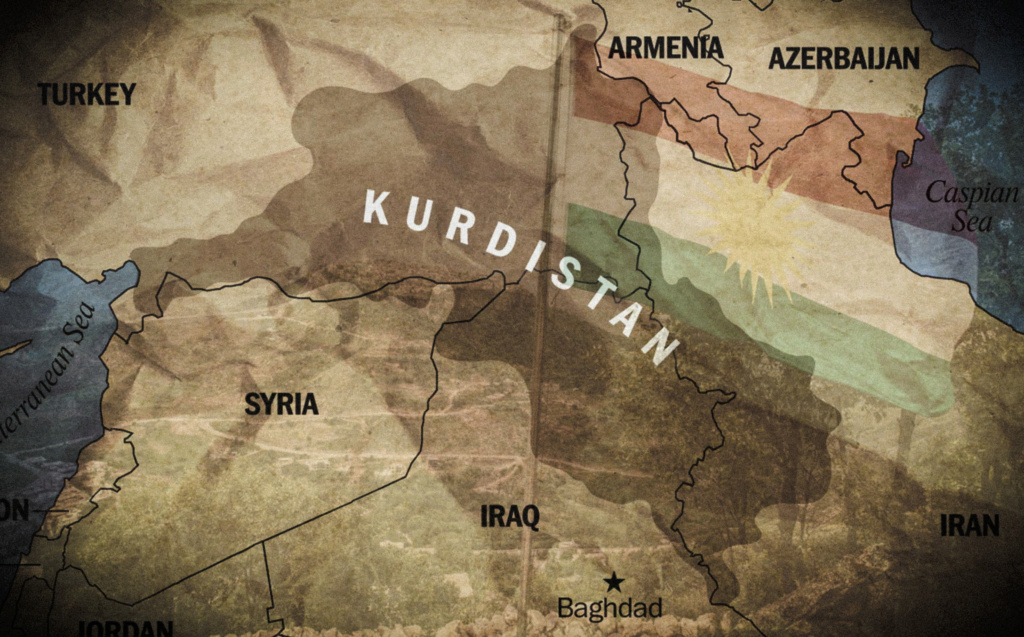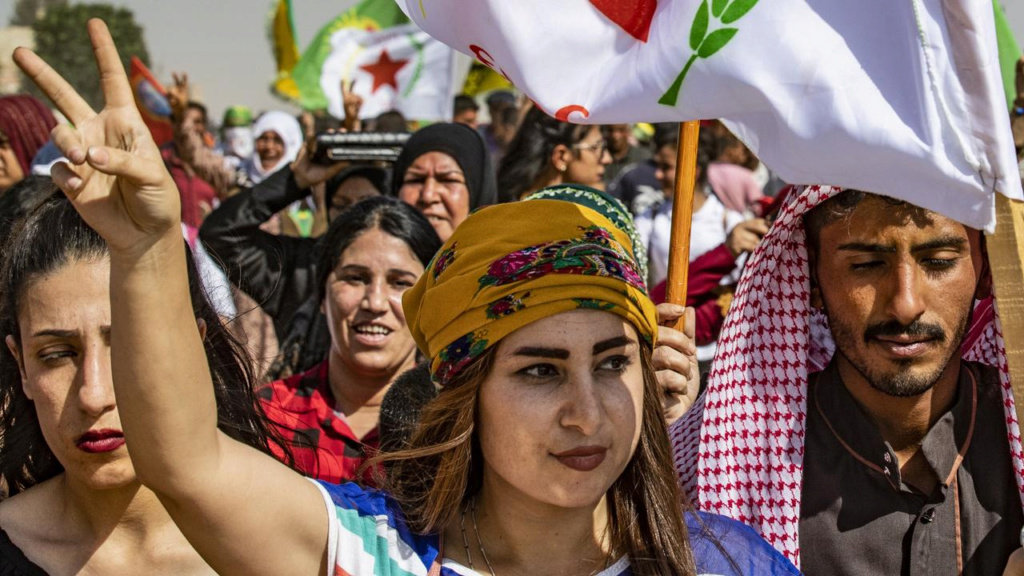?The Kurds... Between Realistic Solutions and National Feeling: Why is it Impossible to Establish a Kurdistan State

The Iraqi model in dealing with the Kurdish issue is one of the most prominent features of a possible solution, had it not been that the Kurds, in the majority of them, insist on independence despite its difficulty as a realistic solution according to many.
The Kurds have not been able to establish an independent state for a long history, and they have remained a people considered part of other nations, whose successes did not exceed the establishment of some scattered emirates, but within the framework of larger and broader countries.
Today, the borders separate the Kurds in the countries in which they live in a way that makes it difficult to communicate between them... in a way that has led to a remarkable difference in their levels of development, growth, and awareness.
Researcher Abd al-Basit Sida [1] explains that these countries; That is, Turkey, Iran, Syria and Iraq, whose economic development plans only meet their centers, and do not give any consideration to the needs of the Kurdish regions in them.
… Rather, the Kurdish regions in these countries, the same researcher continues, have always been the target of marginalization and neglect policies, and efforts to abolish the Kurdish identity.

The most affected component of Kurdish identity in this regard is the Kurdish language. Some sources agree that these countries imposed their official languages on the Kurds, while fighting their language and preventing them from using it.
All of this, Sayda says, gave birth to Kurdish grievances that the continuous denial policy contributed to deepening and generalizing, which resulted in a lot of tension, convulsions, and extremism...
In fact, oppression and oppression can only push the Kurds to continue their struggle for independence, whether it is a realistic solution to their cause or just a dream.
For this reason, researcher Ali Mahmoud acknowledges the difficulty of proposing solutions to a dilemma mixed with feelings of nationalism, the pain of the victim, and partisan, regional, and clan interests.
The Iraqi model
The Iraqi model in dealing with the Kurdish issue is one of the most prominent features of a possible solution, were it not that the Kurds, in the majority of them, as we will see shortly, insist on independence despite its difficulty as a realistic solution according to many.
Before the fall of the regime in Iraq in 2003, the Kurds suffered woe, not to mention the opportunity to participate in the management of state affairs.

They have always been, researcher Ali Mahmoud asserts, demanding recognition of their language and culture, rejecting the language of command from Baghdad, hoping for protection from continuing injustice, restoring stolen rights, ending exclusion and marginalization, and achieving equality and fair citizenship.
But after the fall of Saddam Hussein's regime, the matter turned completely... It was a moment that the Kurds did not think would come one day in light of what they were going through.
… They participated in the constitution-writing committees, and the preamble to the new Iraqi constitution included explicit texts expressing their pain and aspiration.
The Iraqi constitution approved the plurality of nationalities in the country, and stipulated that Kurdish nationalism is the second major nationality, alongside Arab nationalism.
Likewise, the Kurdish language, along with the Arabic language, were approved as two official languages of Iraq, with the procedures that follow.

He also acknowledged that the Kurds are equal to the Arabs and the rest of the components of the Iraqi people...without discrimination.
Rather, the Kurds fortified their gains at that time, according to the researcher Kulshan Sughlam, with an impossible wall that is represented in preventing any derogation from the powers of the region, except with the approval of the Kurdistan Parliament and its residents.
More than all this, there has become a custom that made the Kurds acquire very important shares in the hierarchy of power, including some ministries as well as seats in parliament, the most important of which is… the presidency of the republic!
The current president of Iraq, for example, Barham Salih, is a Kurd and belongs to the Patriotic Union of Kurdistan.
It is true that the executive authority of the President of Iraq is constitutionally weak, but nevertheless, he plays an important role on the moral and sovereign level.

However, despite all this...
On the 25th of September 2017, the Iraqi Kurds went to the polling stations in response to a call for a referendum declaring the independence of the Kurdistan region in preparation for the establishment of their state.
On that day, according to the announced numbers, 92 percent voted in favor of independence from Iraq, in overwhelming support for the proposed division from the capital, Baghdad.
A referendum that did not seem to have received official international support, and sparked a wave of angry actions by the Iraqi government and parliament.
While many Kurds considered that referendum a historic moment they had waited for a long time, others considered it a mere opinion poll that lacked a politically and geographically auxiliary mechanism to advance independence.
And here they are, after they had achieved several gains, and today they are mired in sharp disagreements with the central government over many files, related, according to Ali Mahmoud, to oil, distribution of wealth, border crossings, legal powers, and others.
Thus, the separation project failed, and it seems that, according to Mahmoud, it is impossible in the foreseeable future based on the geopolitical facts in the region.
… Let the dream continue, but reality has another opinion!
Written by: Karim Al-Hani
Source : websites

